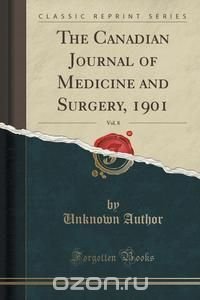Excerpt from The Canadian Journal of Medicine and Surgery, 1901, Vol. 8
Some patients, after the effects of the anesthetic have passed off, will demand food and drink, and will not be pacified until their desires are partially, at least, appeased. Others will get out of bed if the nurse's attention should for one moment be directed to another part of the room, while some, unless carefully watched, will pass their hands under the dressing and finger the wound, or even go so far as to tear off the dressings and pull on the sutures. If excited, they will chatter incessantly, and if irritable they may become very disturbed and noisy. Dieting these patients, owing to their insane desires and cravings, is often troublesome. If not satisfied with the food prepared for them they will vent their displeasure by breaking the dishes, storming at the nurses and making themselves generally disagreeable. The thermometer is almost invariably used in the axilla, and even this simple procedure is repugnant to many of them, and a broken thermometer at times registers their dislike to such proceedings. This little instrument is sometimes regarded with deep suspicion as having the power to produce all kinds of electric shocks and evil influences upon their persons. I have known a patient on whom the thermometer was used, per mouth, produce in a few days a semi-circular ulcer extending under the edge of the tongue induced by biting and chafing it with the teeth, and then blamed the thermometer as being the cause, and denounced the nurse as having ulterior designs on her. Passive resistance has often to be overcome before a catheter can be passed or a patient sponged. It is not unusual for a patient to wet. sheets and soil dressings, necessitating frequent changing. I have known patients get exceedingly angry if not allowed to get out of bed soon after a severe abdominal operation. No amount of persuasion will induce others to take medicine. In the course of subsequent treatment it requires eternal vigilance, endless patience, combined with the unlimited tact of the nurses who have charge of these special cases. I may say that without careful, conscientious nurses, trained especially for the management of these cases, the work would be a dismal failure.
As an offset to these difficulties of surgery among asylum patients, there are some advantages in the fact that they are insane, viz.:
1. Advantages: Little or no shock, as a rule, succeeds even a prolonged and dangerous operation, and post-operative pain is rarely complained of. No doubt the changed mental condition and the insensitiveness of the nervous system accounts for this. The majority of these cases make a good and rapid convalescence.
About the Publisher
Forgotten Books publishes hundreds of thousands of rare and classic books. Find more at www.forgottenbooks.com
This book is a reproduction of an important historical work. Forgotten Books uses state-of-the-art technology to digitally reconstruct the work, preserving the original format whilst repairing imperfections present in the aged copy. In rare cases, an imperfection in the original, such as a blemish or missing page, may be replicated in our edition. We do, however, repair the vast majority of imperfections successfully; any imperfections that remain are intentionally left to preserve the state of such historical works. Это и многое другое вы найдете в книге The Canadian Journal of Medicine and Surgery, 1901, Vol. 8 (Classic Reprint)
